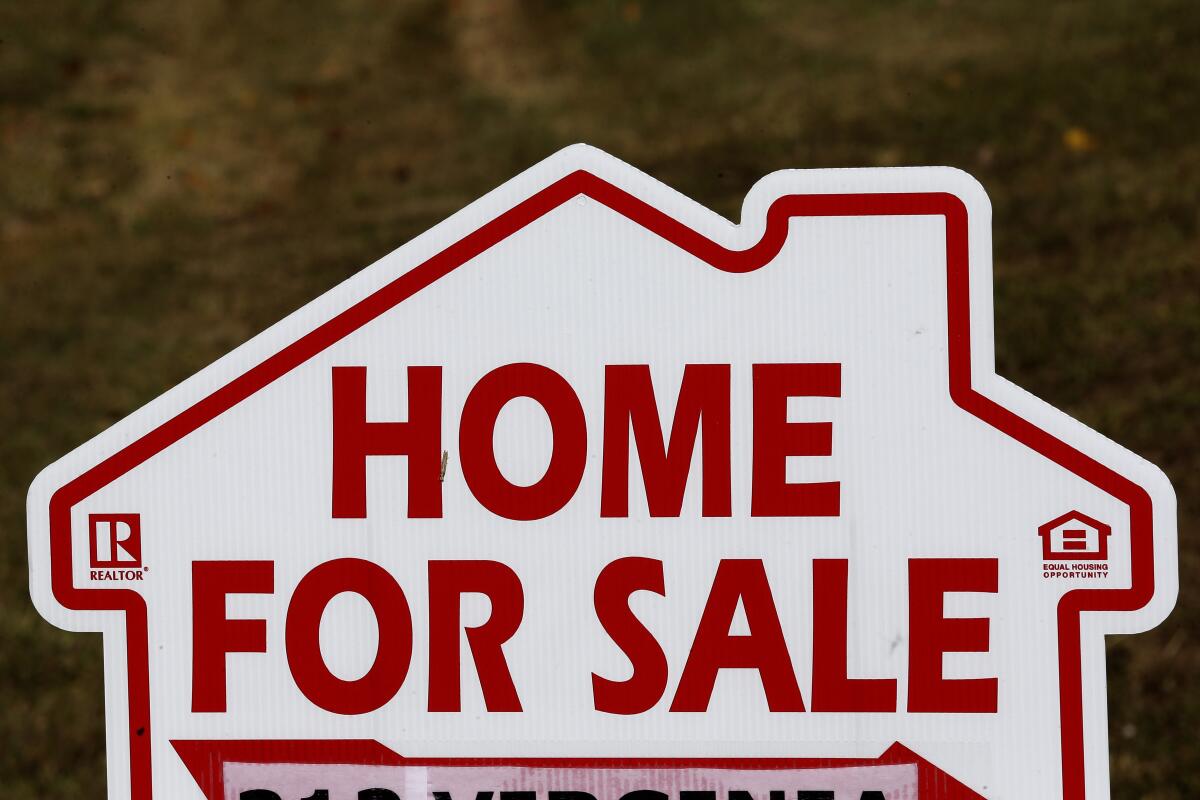Zillow shuts home-flipping business after racking up losses

- Share via
Zillow Group Inc. is pulling the plug on its tech-powered home-flipping operation after deciding that its pricing algorithms weren’t accurate enough to build a stable business.
The company plans to take write-downs of as much as $569 million and reduce its workforce by 25% as it winds down the business in coming months, according to a statement Tuesday. Zillow shares plunged as much as 11% to $76.22 on the news before paring the losses. The stock was little changed as of 4:20 p.m. in New York.
The decision comes as the company’s third-quarter results showed it lost more than $380 million in the flipping operation, called Zillow Offers. The business hit a major snag in recent months as the company’s algorithms caused it to overpay for houses just as the heated U.S. market began to cool slightly, forcing it to list properties at a loss.
“We’ve determined the unpredictability in forecasting home prices far exceeds what we anticipated, and continuing to scale Zillow Offers would result in too much earnings and balance-sheet volatility,” Chief Executive Rich Barton said in the company’s earnings statement.
Zillow has had a turbulent few weeks. On Oct. 18, it issued a statement confirming a report that it wouldn’t make any new offers on houses for the rest of the year as it struggled to find workers to fix the homes it had under contract. Bloomberg reported Monday that the company was marketing 7,000 homes for roughly $2.8 billion to institutional investors.
For most of Zillow’s 15-year history, the company has been known for publishing online real estate listings and home-price estimates — called Zestimates — and seeking to profit by connecting agents with potential clients. In 2018, Barton, one of the company’s founders, reclaimed the role of CEO and pivoted into the high-tech home-flipping business, called ibuying, “short for instant buying.”
In the new business, Zillow used pricing algorithms to buy homes from their owners, make light repairs and put them back on the market. Barton set an ambitious goal, seeking to buy 5,000 homes a month by 2024.
Earlier this year, the company borrowed more than $1 billion through two bond offerings, making it the first ibuyer to tap the securitization market. It has also lined up $500 million in credit facilities with Credit Suisse, Goldman Sachs and Citigroup.
As recently as August, Barton was boasting about the popularity of the service, telling investors that the traditional way of selling a home was so “dreadful and dreaded” that customers were willing to bypass potential bidding wars to sell to Zillow “in this sizzling-hot sellers market.”
Zillow bought roughly 9,700 homes in the third quarter, due to what it called “higher-than-anticipated conversion rates.” It also booked a $304-million write-down on inventory owned at the end of the period “as a result of unintentionally purchasing homes at higher prices” than the company now thinks it can sell them for.
After the company’s decision to halt new purchases, it became clear that Zillow had misjudged the housing market, tweaking its algorithms to make more aggressive offers just as competitors Opendoor Technologies Inc. and Offerpad Solutions Inc. were growing more cautious.
Zillow’s fire sale could continue: The company expects to buy roughly 9,000 homes in the fourth quarter and said it will take a write-down of as much as $265 million on home purchases that will close in the final three months of the year.
Zillow’s decision to get out of the business will raise fresh questions for Opendoor, Offerpad and a growing field of other companies seeking to disrupt the traditional way of buying and selling homes.
The decision also raises questions for Barton, a serial entrepreneur who also founded Expedia Group Inc. and the careers website Glassdoor. He returned to the CEO job in 2018 because he wanted to lead the move into ibuying. For now, he’s sticking around as Zillow falls back on its old business of connecting home buyers with agents.
“We believe there are better, broader, less risky, more brand-aligned ways of enabling all of our customers who want to move,” Barton wrote in a letter to investors. “We now plan to focus our offerings on asset- and capital-light solutions.”
More to Read
Inside the business of entertainment
The Wide Shot brings you news, analysis and insights on everything from streaming wars to production — and what it all means for the future.
You may occasionally receive promotional content from the Los Angeles Times.










